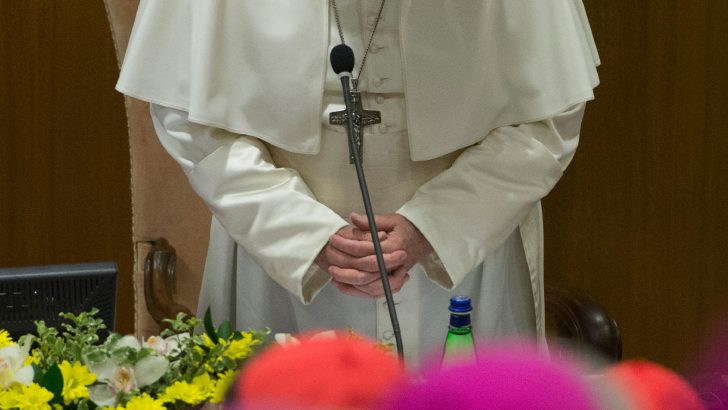The View
The recent four-day meeting on child protection in Rome raised very high hopes. It was almost inevitable that some of those hopes would be dashed. The Pope had articulated clearly what he wanted to do. The three themes of responsibility, accountability, and transparency were well chosen – they are key for any organisation seeking to address wrongdoing in its midst – in this case clerical sexual abuse and the failure to deal with it properly.
There already exists an obligation on bishops and religious superiors to investigate allegations of child sexual abuse, and to cooperate with civil (non-Church) authorities. Few countries actually require mandatory reporting of any crime, even murder. In the North, the law requires a person who has information which is not known to law enforcement officers about a crime which has been committed to convey that information to the police. Failure to do so carries a heavy penalty. The Republic, England, Scotland and Wales have no such law.
Legal systems
Every man, woman, priest, bishop, archbishop, cardinal, religious superior in our Church must understand that the first obligation is to report allegations of sexual abuse of children and vulnerable adults to the statutory authorities, and then to leave individual countries – through their criminal legal systems – to prosecute where it is justified to do so, and to impose any relevant penalty. There must be full cooperation with the State. Prosecutorial authorities must act properly, treating these cases with the seriousness which is necessary, appropriating the necessary resources to each case.
After those proceedings, or in the absence of such proceedings (for there are still countries which do not prosecute such allegations or which do not have the judicial systems capable of dealing with all the varied cases which present for trial) the local Church must act in accordance with Canon Law. Its systems, too, must be properly resourced.
Little has been published about the working of Church tribunals locally, or of the Congregation for the Doctrine of the Faith in Rome. It is time for this to change. The evidence is that the CDF is understaffed for the work which it must do, and that the relevant parts of Canon Law require development.
The summit in Rome was never going to be a meeting which re-drafted Canon Law, that will require rather longer than four days. No matter how urgent the need for such reform it must be done with care, to ensure that it is capable of delivering justice transparently through an accountable system.
The hardest cases are those in which the civil authorities do not prosecute, because the evidence does not meet the required threshold for prosecution. In those cases, the State will not, cannot act.
The Church then has a duty to apply its own law, Canon Law, in an attempt to do what the State has been unable to do: to find a way forward in justice. There should be no cover-ups. There should be no finding of guilt in the absence of proper evidence.
The Church must ensure that both local and CDF proceedings are fair. At present CDF proceedings are private. Whilst testimony may be taken from victims, witnesses and the accused, neither the accused nor the victim has the right to be present at proceedings and to hear what is said and to see their lawyers intervene and challenge, so that they can understand what is happening. It is true that separate Canon lawyers represent the victim and the accused, but this is not consistent with modern transparent accountable legal proceedings. It is not calculated to achieve trust in the proceedings.
Justice must be seen to be done in a timely and proper way.
Surely it is now time for the Holy See to dedicate much increased resources to the work of the CDF, and to bring in many more people to assist in the work. If there is a dearth of sufficient, competent – qualified Canon lawyers – then appropriately-trained civil lawyers should be able to become competent to act with the Canon lawyers. This must be an absolute priority for the Church.
The CDF of the future is pivotal to how the Church delivers accountability with transparency, so that it can discharge fully the responsibilities which derive from its very existence, from its Divine Creator.
If there is a shortage of money to fund the work of the CDF, then Vatican assets must be sold to provide the necessary resources. It will not be easy. Yet, challenging though it may seem, we have to find a way.


 Nuala O’Loan
Nuala O’Loan Pope Francis prays on the second day of the Vatican meeting on the protection of minors. (CNS photo)
Pope Francis prays on the second day of the Vatican meeting on the protection of minors. (CNS photo) 